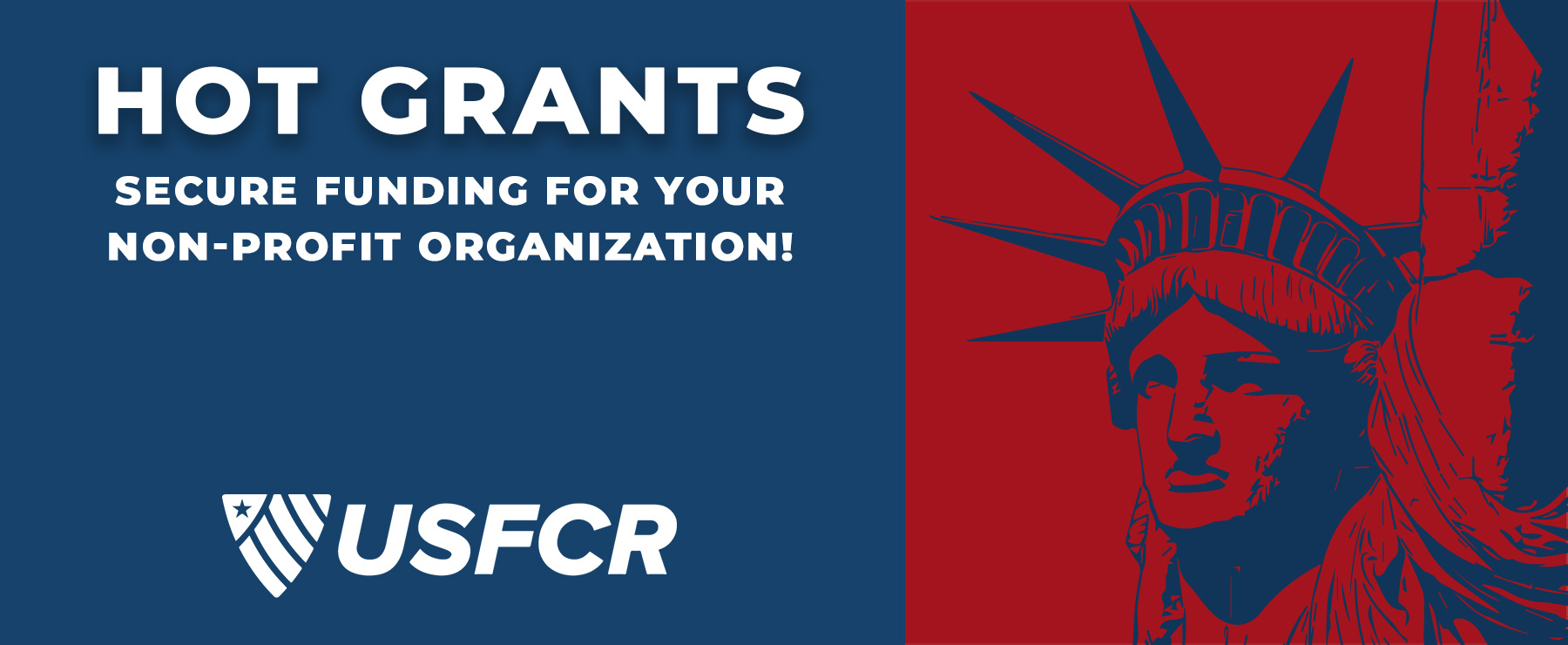.png?width=810&name=Blog%20Post%20Template%20%20(1).png)
Grants offer businesses, nonprofits, and researchers a powerful funding source without the burden of repayment. But securing a federal grant isn’t easy—funding is competitive, applications require detailed proposals, and eligibility rules vary by program. Whether you're looking to fund research, expand operations, or support a community project, understanding the federal grant process is the first step to winning the funding you need.
What Are Federal Grants?
A federal grant is non-repayable funding awarded to businesses, nonprofits, and other organizations to support projects that align with national priorities. Unlike loans, grants don’t require repayment, but they come with strict requirements—recipients must use the funds exactly as proposed, track spending, and report outcomes.
Where to Find Federal Grants
The federal government offers billions of dollars in grants every year. Finding the right opportunity depends on your industry, business size, and project goals.
Government Grant Sources
- Grants.gov: The largest database of federal grants.
- SBIR & STTR Programs: Small business grants for technology innovation and research.
- EDA Grants: Funding for economic development, job creation, and infrastructure.
- USDA Rural Business Grants: Supports small businesses and farms in rural areas.
- DOE Grants: Funds clean energy startups and sustainability projects.
Many businesses also use USFCR’s Advanced Procurement Portal (APP) to search for grants and government contracts in one place.
Key Federal Grant Programs for Businesses
Small Business Innovation Research (SBIR) & Small Business Technology Transfer (STTR)
- Purpose: Funds small businesses engaged in R&D with commercialization potential.
- Funding: $2.5 billion awarded annually.
- Agencies Involved: 11 federal agencies, including DoD, NIH, and NASA.
Economic Development Administration (EDA) Grants
- Purpose: Supports economic development in distressed areas.
- Focus Areas: Infrastructure projects, business expansion, and workforce training.
- Programs: Includes Public Works, Economic Adjustment Assistance, and Planning grants.
Community Development Financial Institutions (CDFI) Fund
- Purpose: Strengthens mission-driven lenders supporting underserved communities.
- Funding Impact: Over $8 billion in grants and $81 billion in tax credits since 1994.
Other Major Business Grant Programs
- National Science Foundation (NSF) Grants: Early-stage R&D for startups.
- USDA Rural Business Grants: Funds for small-town businesses and farms.
- Department of Energy (DOE) Grants: Clean energy and sustainability funding.
Private Sector Grants
Not all grants come from the government. Many private organizations and corporations provide funding for businesses, nonprofits, and startups.
Corporate and Nonprofit Grants
- National Association for the Self-Employed (NASE): Offers monthly grants up to $4,000 for small business development.
- Corporate Foundations: Companies like FedEx, Google, and Walmart offer grant programs to support small businesses and community projects.
- Nonprofit Grants: Many nonprofits act as intermediaries, distributing government funds to small businesses and startups.
Private grants often have less restrictive eligibility requirements than federal grants, making them an attractive option for for-profit businesses.
How to Write a Winning Grant Proposal
Federal grants are highly competitive, and a strong proposal is key to getting funded.
1. Find the Right Grant
Before applying, make sure you:
- Meet all eligibility criteria.
- Have a clear project plan with measurable goals.
- Understand the agency’s funding priorities.
2. Build a Strong Proposal
Most grant proposals include:
- Cover Letter: Briefly introduces your project and funding request.
- Proposal Narrative:
- Organization history and mission
- Problem statement and project goals
- Plan of action with measurable outcomes
- Budget Plan:
- Funding request and project costs
- Breakdown of expenses and financial sustainability
3. Common Mistakes to Avoid
- Applying for the wrong grant (not meeting eligibility)
- Weak budget planning (lack of financial transparency)
- Vague project goals (not measurable or aligned with agency priorities)
How Federal Grants Fuel Business & Economic Growth
Federal grants don’t just help individual businesses—they drive job creation, industry innovation, and community development.
- Job Creation: Many grant-funded projects require hiring new employees.
- Technology Advancement: SBIR and DOE grants support cutting-edge innovation.
- Community Growth: USDA and EDA grants strengthen local economies.
For example, USDA Rural Business Grants have helped small-town businesses expand, creating thousands of new jobs across the country.
Recent Federal Grant Funding Updates
Grant programs change frequently, and businesses must stay updated on funding shifts. Some recent developments:
- USDA Grant Freezes: Some grants were paused due to budget adjustments.
- DOE Clean Energy Grants Expanding: New funding is now available for solar, wind, and battery storage projects.
- EDA Resilience Grants: New programs helping businesses recover from economic downturns.
What’s Next? Secure Grant Funding with Expert Help
Federal grants can fuel business growth, but navigating the application process is complex. A well-prepared proposal can make the difference between getting funded or missing out.
- Assess Your Eligibility: Find the right grants for your business.
- Build a Winning Proposal: USFCR’s Grant Writing Service can help.
- Stay Informed: Track funding changes that impact your industry.
Need expert grant writing assistance? Contact USFCR today and take the next step toward securing federal funding!
If you need assistance writing a grant proposal, we have expert grant writers on staff at USFCR. Find out more about our Grant Writing service here.




